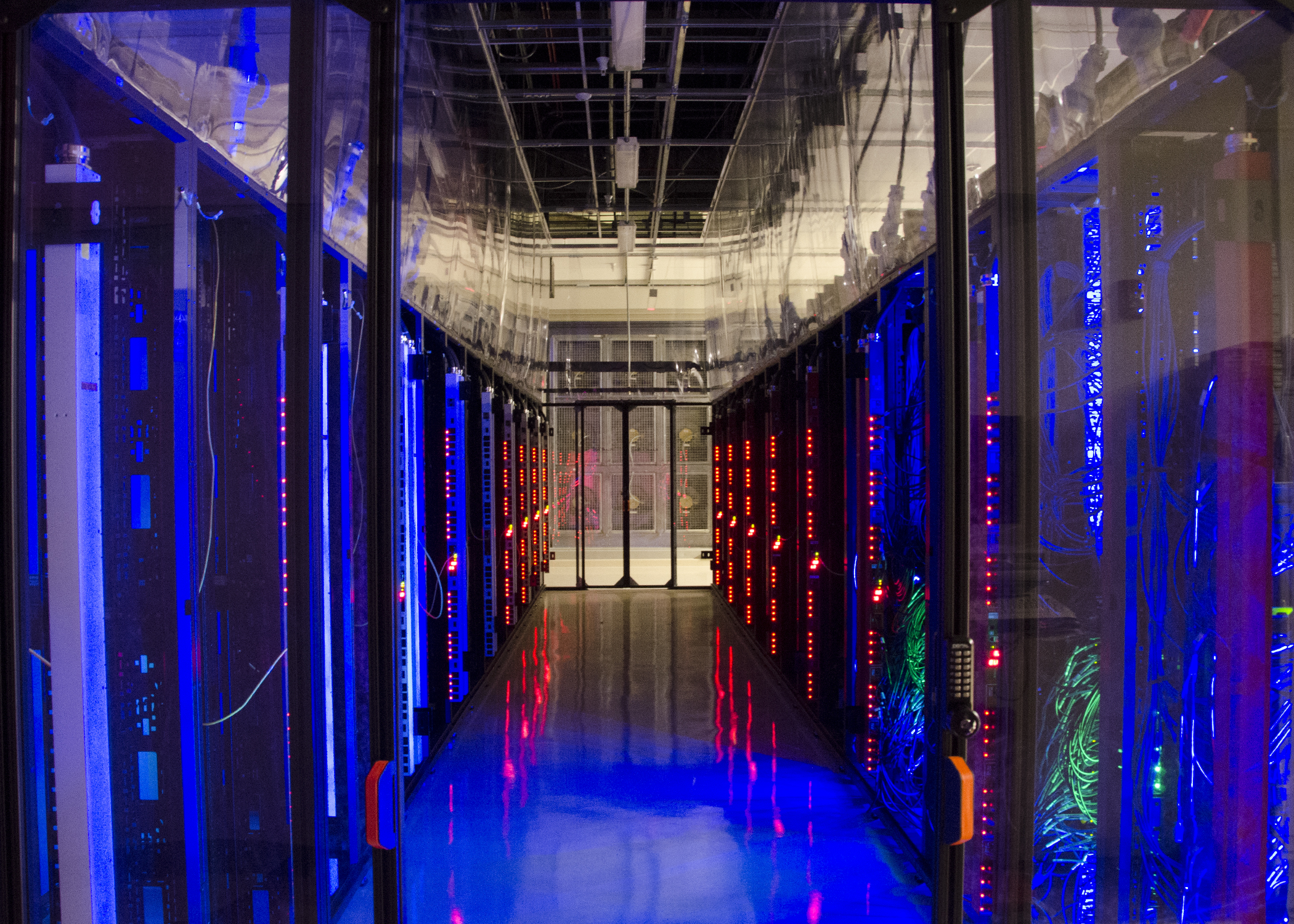You’re accessing archived content
This is archived content from the UIT website. Information may be outdated, and links may no longer function. Please contact stratcomm@it.utah.edu if you have any questions about archived content.
A new future for cloud computing: U receives $10M grant

A new cloud computing facility, called CloudLab, will be hosted at the U’s Downtown Data Center.
University of Utah computer scientists have been awarded a three-year grant from the National Science Foundation – to the tune of $10 million – to go towards building and supporting a new cloud computing facility.
The facility, called CloudLab, will be hosted at the U’s downtown data center and is dedicated solely for researchers studying cloud computing, which is a way for consumers and companies to “rent” computers and data storage. “The cloud” refers to large pools of linked computers (typically in data centers), which perform offsite data processing and storage.
“If you want to study, say, architecture, you can’t go to an apartment building and poke around in one of the rooms and learn about architecture,” said Robert Ricci, principal investigator of the new grant and assistant professor of computer science. “If you want to study the cloud, you need to be able to build one yourself."
Today’s clouds are designed with specific technologies under the surface, which can make it difficult for researchers to run scientific studies of cloud computing.
“One of the problems that researchers run into is that they want to do work on the cloud, but the scale of resources is really quite limited,” said Ricci.
CloudLab will provide an environment that will allow researchers to work on apps that don’t necessarily work well on today’s commercial cloud, and really drive forward the understanding of what we can do in the cloud.
“We have a sense right now of what commercial clouds are built for today – what applications work, security and privacy implications,” said Ricci. “But there’s a lot we don’t understand about what the fundamental properties and limits are. How we can manage privacy in clouds, for example.”
Of University Information Technology (UIT), both Steve Corbató, Interim Chief Information Officer, and Joe Breen, network architect for the Center for High Performance Computing, contributed efforts towards receiving the award.
“One of the important pieces of this is we’re building these three clusters and we need the network architecture to tie all these things together,” said Ricci. “As our chief network architect for CHPC, Joe has really helped us on how to make that work and how to make a wide area, truly programmable network for our users to use.”
Corbató, Ricci, and two other College of Engineering faculty collaborators, Eric Eide and Kobus Van der Merwe, will receive $3.8 million of the total award. The rest will go to partnership institutions: the University of Wisconsin, University of Massachusetts, Clemson University, Raytheon BBN Technologies and US Ignite.
The U investigators will also be collaborating with Navajo Technical University in Crownpoint, NM to provide CloudLab software, documentation and resources for teaching and research use in the classroom.
An early version of CloudLab software should be available later this year, and will be free for research and classroom use. Information about the project can be found online at: www.cloudlab.us.
The official press release can be found here.
